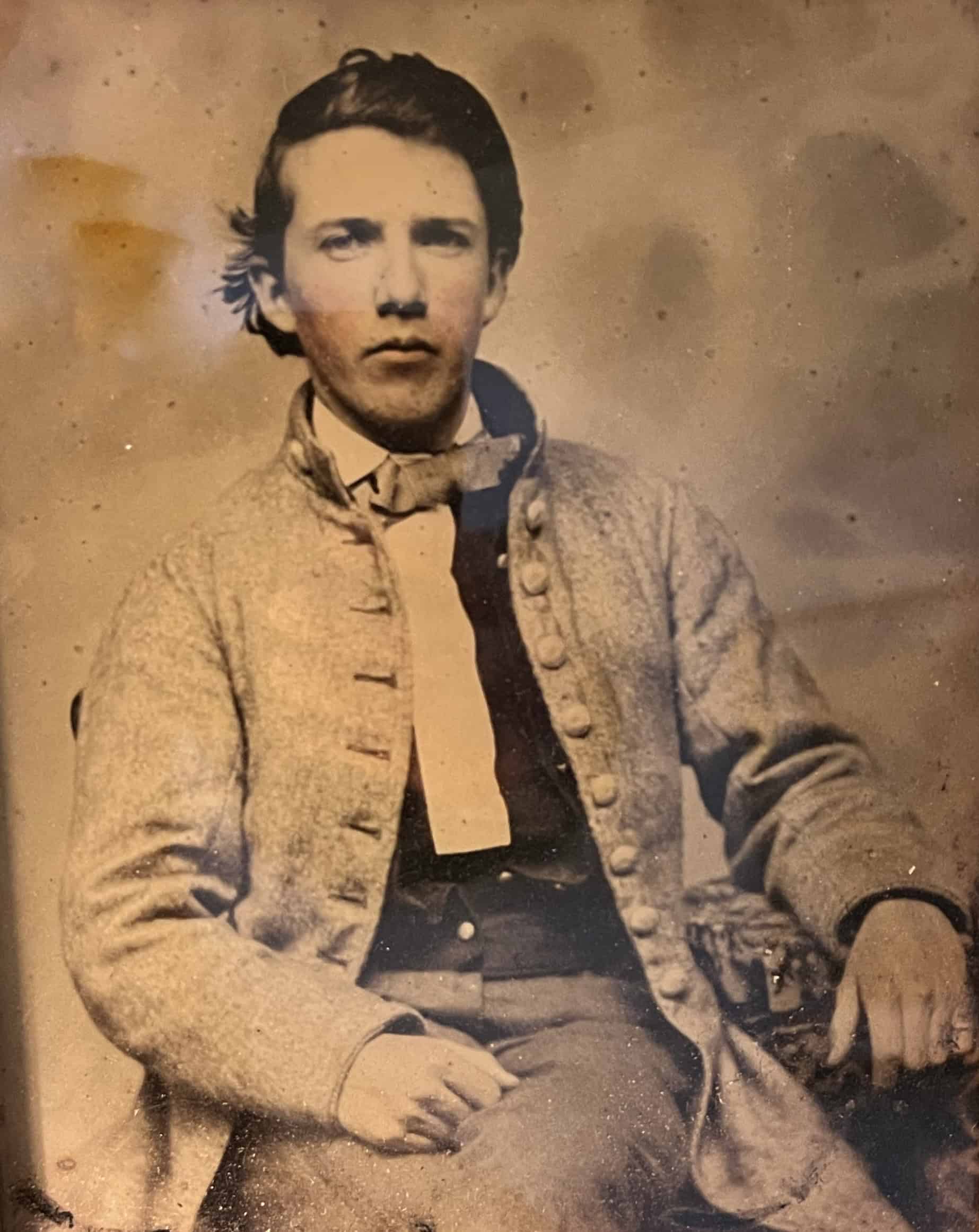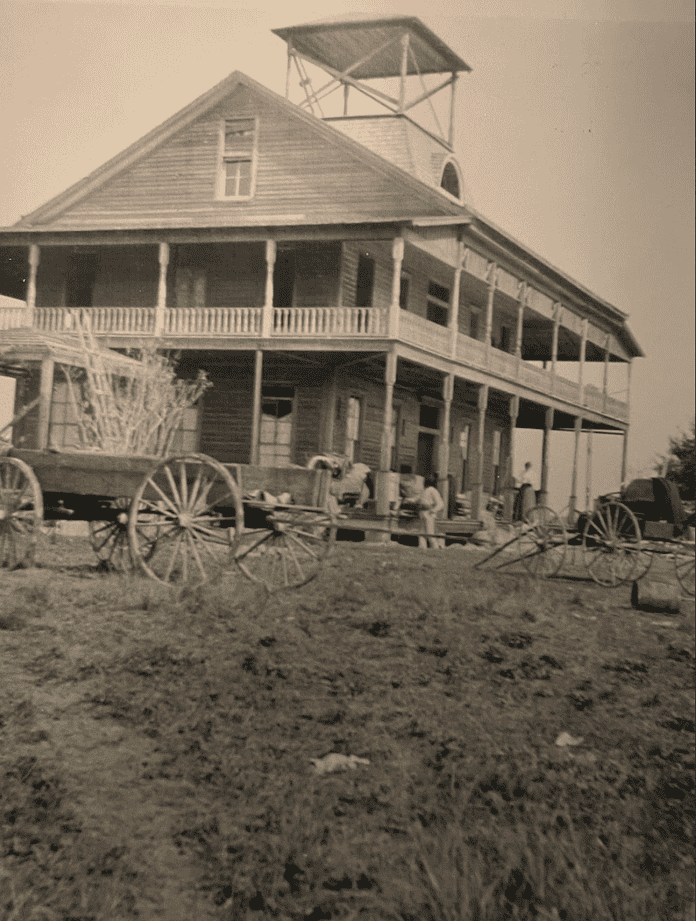By Blake Bell
In 1851, Col. Francis Ederington left his home in Fairfield County, South Carolina, with his friend Anderson Mayo in search of fertile land in the newly established state of Florida. He found what he was looking for atop a hill now called Chinsegut in Hernando County.
At the time, Ederington was just 27 years old, married to Precious Ann (Nevitt), and a father to young daughters. The Ederingtons were part of South Carolina’s high society during a period of economic prosperity following the Revolutionary War. Charleston was a major U.S. port for international trade, and cotton was king. Ederington came from a long line of early American planters—some of whom helped settle the Virginia Colony in the early 1600s, while others built large farms in South Carolina. However, soil depletion due to the lack of crop rotation led many young planters, including Ederington and Mayo, to seek new agricultural opportunities. Florida’s golden-rich soil and the promise of adventure on the frontier inspired the two lifelong friends to embark on their journey south on May 5, 1851.
Mayo kept a detailed journal of their trip, which involved traveling by train, boat, horse, wagon, and even on foot. Around May 20, 1851, they arrived in Hernando County, where Ederington immediately began searching for a place to build his home. He connected with Col. Byrd Pearson, a fellow South Carolinian who was planning to relocate his family to Jacksonville. Pearson offered to show Ederington his prized property. Together, they traveled to Tiger Tail Hill, just north of Melendez (now Brooksville). Early that spring morning, Ederington took in the breathtaking view of Hernando County’s rolling green fields from one of Florida’s highest geographical points. He knew at once that this was where his family would put down roots for generations to come. On May 24, 1851, he purchased 360 acres of land from Pearson and renamed it Mt. Airy, a fitting name for Florida’s “little mountain.”
Ederington returned to his family in Fairfield County on May 27, 1851. Soon after, he, his family, enslaved workers, and farm animals began the arduous 450-mile trek back to Hernando County. They traveled by mule and horse-drawn wagons, a journey that took several weeks. In some areas, they had to cut out roads and build rafts to cross streams. Florida, though not yet the Wild West, presented a similar frontier experience. Adding to the challenge, Ederington’s wife, Precious Ann, was pregnant with their fifth child at the time.
For the first few months after their arrival, the family lived in the small house Pearson had built in 1849. Meanwhile, construction began on the grand plantation house that still stands today. Over time, Ederington expanded his farm, securing hundreds of additional acres.
Finding the best crops for Mt. Airy’s farmland was a process of trial and error. Though experienced as a planter in South Carolina, Ederington was new to Florida agriculture. He initially attempted to grow sugarcane, cotton, and corn but was disappointed with the yields. Instead, he shifted focus to citrus groves, cattle ranching, and timber. In the 1860s, he introduced bamboo plants from Southeast Asia, which are believed to be among the first planted in America.
Ederington also built a successful red cedar operation with his trusted business partner and friend, Anderson Mayo. They struck a deal with the Faber Pencil Company of New York to supply Florida red cedar. Given the risk of stagecoach and train robberies, Faber owned large schooners and arranged a trade with Ederington: in exchange for cedar, the company shipped merchandise, currency, and gold to Bayport at a shared cost. Upon arrival, Ederington and W.W. “Bill” Wall had large wagons waiting to transport goods to Brooksville and Tampa. Together, they established the Ederington and Wall store in Brooksville and the W.W. Wall store in Tampa, which became the first business to operate in a three-story building in the city. Their ventures proved so successful that Eberhard Faber, the pencil company’s owner, advised Ederington to secure his holdings in a bank. At the time, the closest banks were in Tallahassee and Jacksonville. However, according to the executor of his estate, Ederington effectively acted as a “bank” himself, holding promissory notes with interest from many of Tampa and Brooksville’s most reputable businesspeople.
A devout Christian, Ederington and his family were deeply involved in the local church. They initially attended Lake Lindsey Baptist Church, but when the church was burned by Native Americans in 1854, they joined Union Baptist Church in town.
On May 3, 1855, Ederington was appointed by the State of Florida to the Hernando County Indian Patrol Duty for District 1. Later, during the Civil War, he served as a member of Captain Breaker’s Old Guard and Mounted Rangers.
Francis and Precious Ann Ederington had eleven children, most of whom remained in Hernando County. They married into other early settler families, built homes, and became leaders in their community, churches, and local government. Thanks to Ederington’s pioneering spirit and deep love for the land, many of his descendants still call Hernando County home today.
On November 2, 1866, Col. Francis Ederington passed away atop Mt. Airy. He was laid to rest in the Ederington Cemetery, just steps from the manor house he built with his wife—now the oldest home still standing in Hernando County.
Blake Bell, an attorney, served as the Mayor of the City of Brooksville for two terms. He serves on the Board of Trustees for the Tampa Bay History Center, teaches Sunday school, chairs the Ederington Family Foundation, and is a member of the Withlacoochee Chapter of the Sons of the American Revolution. A seventh-generation Brooksvillian, Bell is a direct descendant of Hernando County founding families Ederington, Mein, and Snow.


